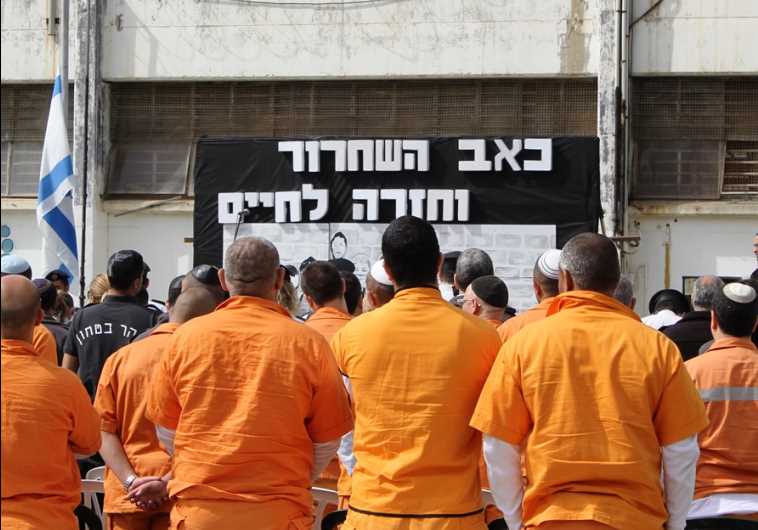Prison Holocaust ceremony focuses on rehabilitation, drawing lessons from past
Holocaust can be used to teach moral and social ideas to Jewish and Arab prisoners alike, head of the education branch of Ayalon prison says.
 Inmates observe Holocaust Remembrance Day at Ayalon Prison(photo credit: BEN HARTMAN)
Inmates observe Holocaust Remembrance Day at Ayalon Prison(photo credit: BEN HARTMAN)